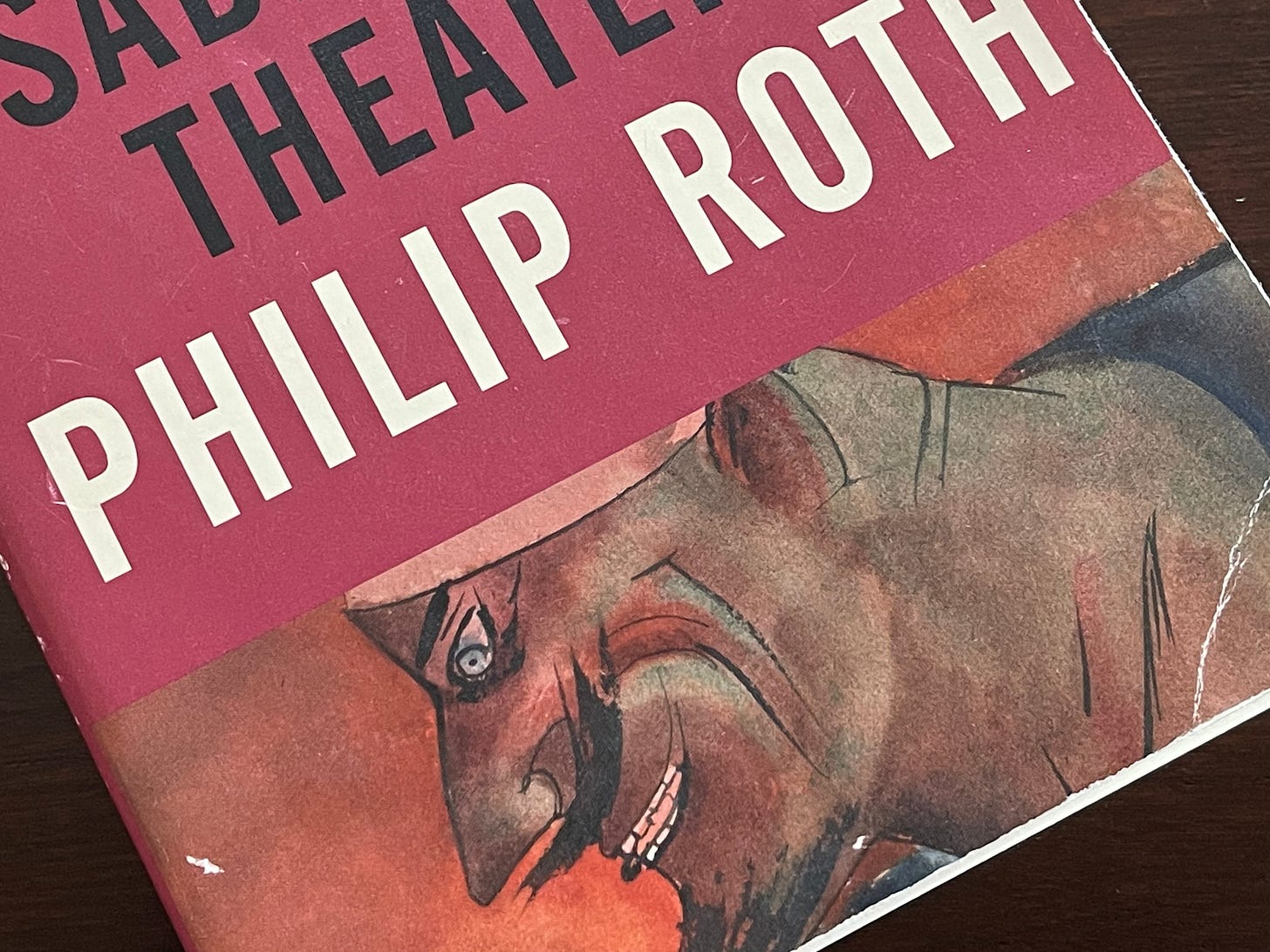Philip Roth: Bad Lover
Is that the same thing as misogyny?
I completely understand why people don’t like Philip Roth, for the same reason that I completely understand why people don’t like all sorts of flavors that simply will not blend. He is not for all tastes, and quite clearly never wanted to be. Moreover, it’s not like ignorance of Roth inhibits you from participating in modern culture the way ignorance of Shakespeare or the Marvel Comic Universe does. So if you don’t like him, don’t read him, and don’t feel bad; read other great writers who are more congenial to you.
(As an aside: This is completely orthogonal to the question of Roth’s “greatness.” Personally, I don’t think the MCU is such a great artistic achievement. I also don’t find it very compelling on a personal level — and for both reasons, I haven’t invested much time or energy in the movies, only a handful of which I’ve actually seen. I recognize, though, how important the MCU is to contemporary culture, and how my lack of interest in it really does handicap me. By contrast, in addition to having a strong personal affinity for Roth, I think he is a truly great writer, someone I’ll never stop learning from on every level. Nonetheless, I don’t think he’s “necessary” in the sense that you can’t make sense of the present without him — you most certainly can.)
But I don’t really get why some people hate him so much — and hate him they do. The haters are in the news again because Roth is, on account of the new authorized biography which appears to confirm what everybody already knows. In the early years of his career, the haters were mainly other Jews scandalized by his willingness to air dirty laundry where the goyim could see (or who refused to believe that the laundry could ever be as dirty as he showed it to be). I (perhaps naively) tend to look down on their reaction; I like to imagine that, no matter how vulnerable I felt based on still-recent and gruesome history, I would have championed a young brick-thrower who aimed at my own and my neighbors window the way that Roth did. For the last several decades, though, the main haters have been those who find in him an exemplary instance of mid-century phallocentrism and misogyny.
Phallocentric Roth unquestionably was — but was he a misogynist, someone who hated women? I know at this late date it seems like a crazy thing to even question. Roth painted some pretty gruesome female portraits, some of them clearly drawn very specifically from life. He was a very angry writer who aired his anger freely, and women were certainly among the frequent targets of that anger. But did he hate them as a category? Does his writing feel motivated by fear and disgust, a need to separate himself from female contamination, or to demean and subordinate them to sustain his ego?
That doesn’t feel quite right to me. Mickey Sabbath isn’t someone every woman is going to want to hang around with, to say the least, but he doesn’t feel like the expression of a writer motivated by hatred of women — far from it. Roth didn’t understand women all that well, and inasmuch as he did understand them he did so from the outside, from how they affected him. But the main emotion that pours off Roth’s pages when it comes to women isn’t hatred or fear but desire, and obsession with that desire. Nor did he hate that desire, and therefore hate women for inspiring it, no matter how much desire deranged him. Rather, inasmuch as he strove to understand women — specific women, both women he knew and women he created — he did so because he desired them so much, and was so fascinated by his desire for them. The contrast with someone like Bellow, who never shows any real interest in his female characters, is transparent on every page.
Now, that’s a limited and deeply self-involved lens through which to approach other people. But it is a really important lens nonetheless. Desire is a big deal! It kind of makes the world go ‘round! Roth, inasmuch as he stood for anything as a writer, stood for that contention, and in that regard what distinguishes him for me from Updike and the rest of the 20th century priapic pack is that he never got smug or complacent about it, never got comfortable. The quest was ongoing, always; it remained alive.
Let’s face it: throw a brick in Brooklyn in any direction and you’ll hit a bunch of men who don’t understand women, and a passel of self-involved artists of all genders. The problem with Roth is not that he hated women; it’s that he loved them badly, and never apologized for it. Like a bad lover, he was so focused on his own feelings that he never really got those of his partner, never learned what really pleased her — never really tried to. But a lover he was — a fervent, emphatic and exuberant one. And while a lot of us carry around this notion that the lover we want is aways caring and attentive, most of us, if we’re honest, know that we can easily be drawn not to the person who cares for us best but to the one who wants us in the worst way.
I don’t think Roth hated women any more than he hated Jews, or America, or the profession of writing. He was exasperated by them, enraged at them, in frequent conflict with them. He was also eternally bound up with them, and did not truly desire ever to be unbound.


